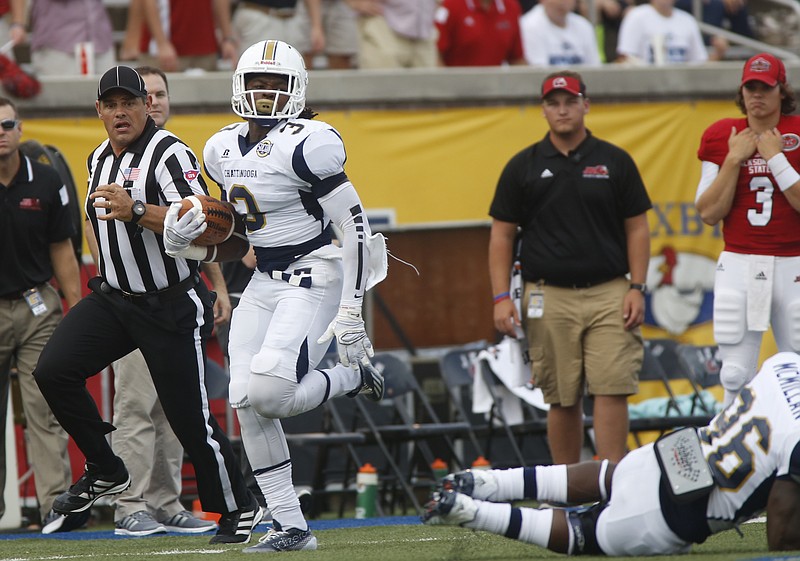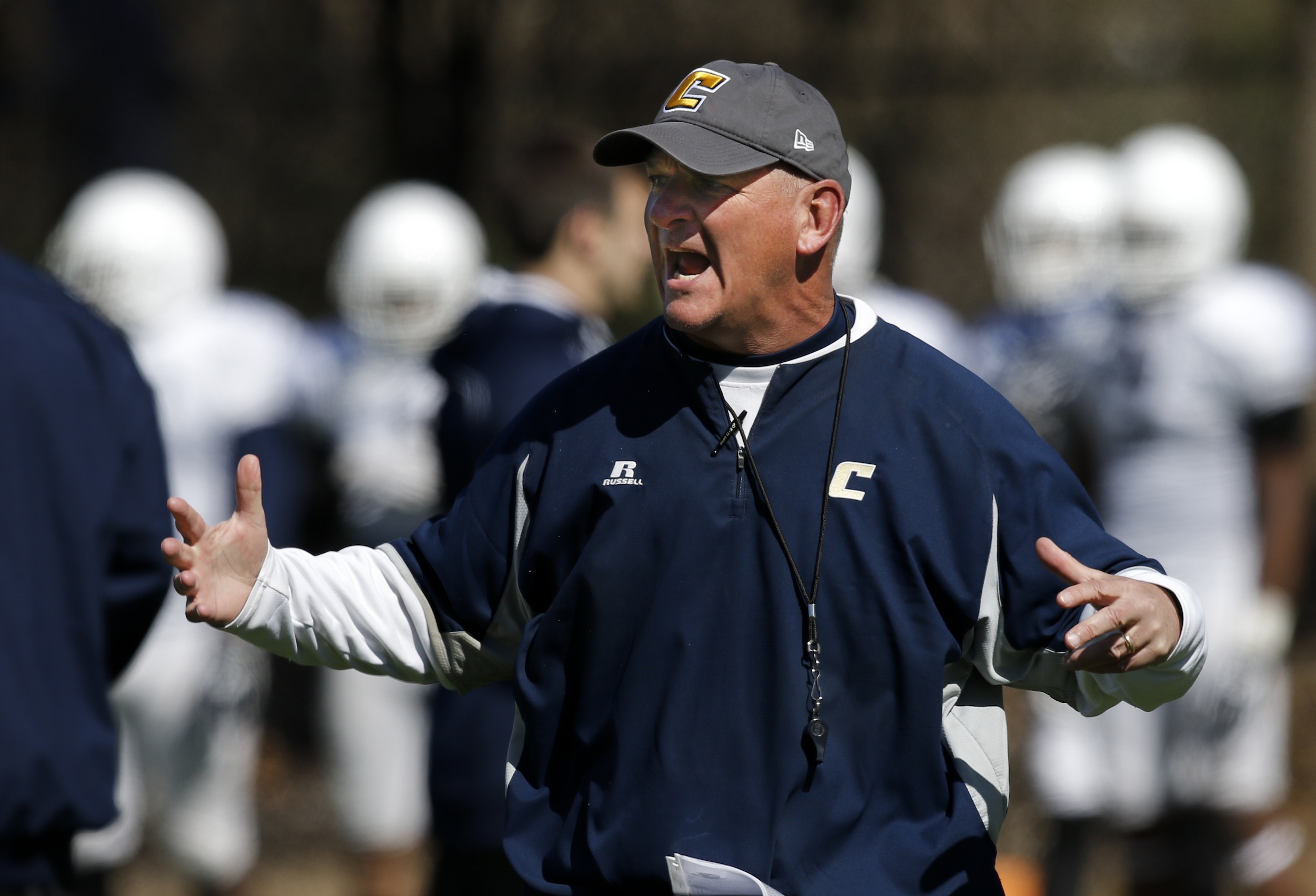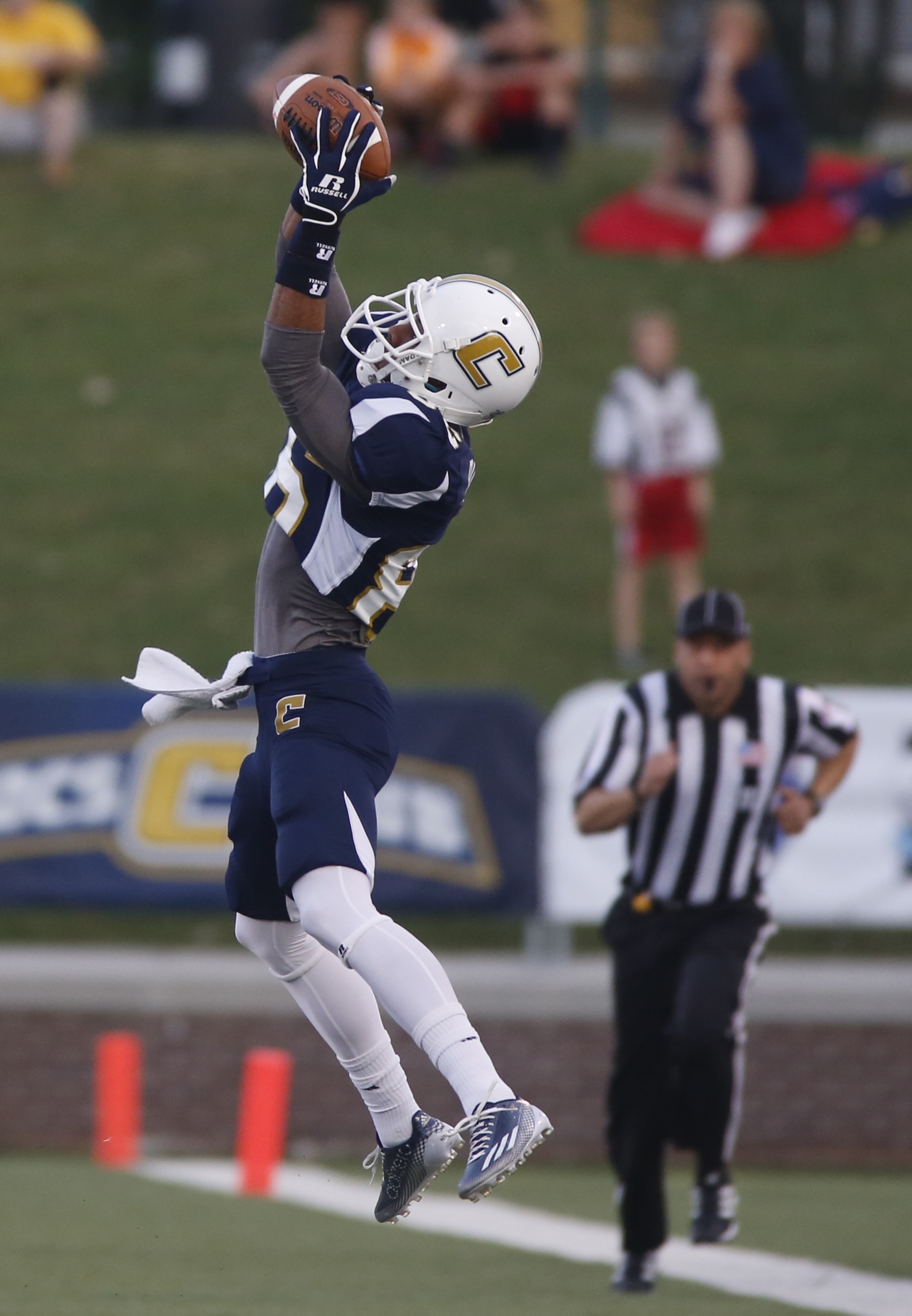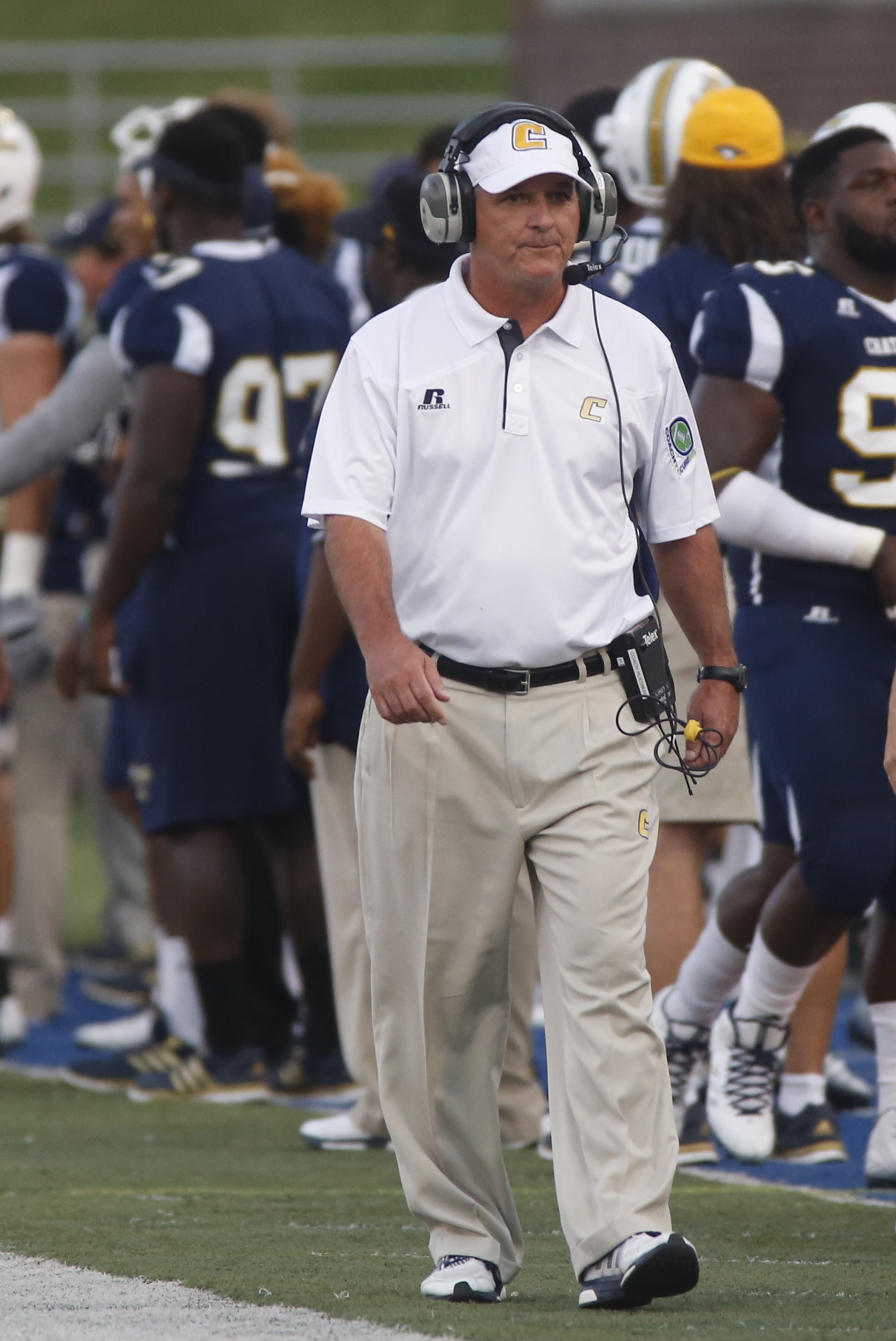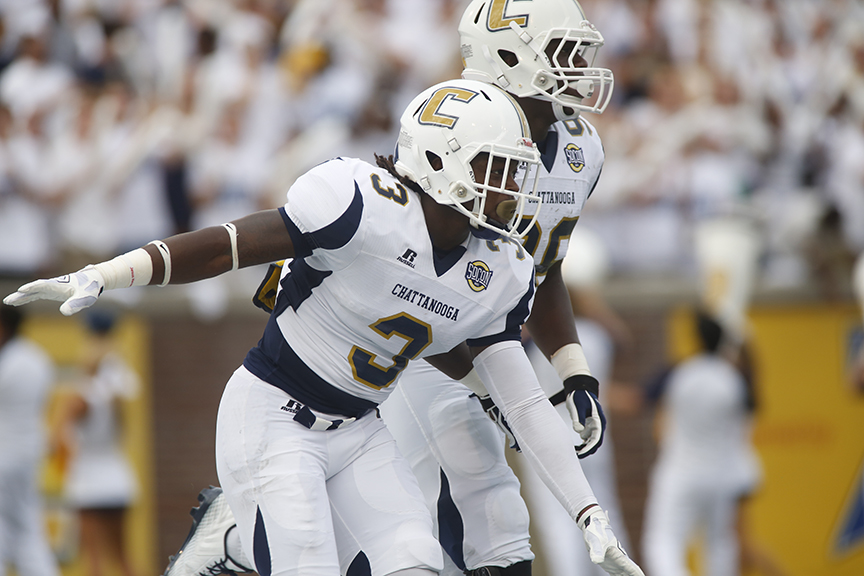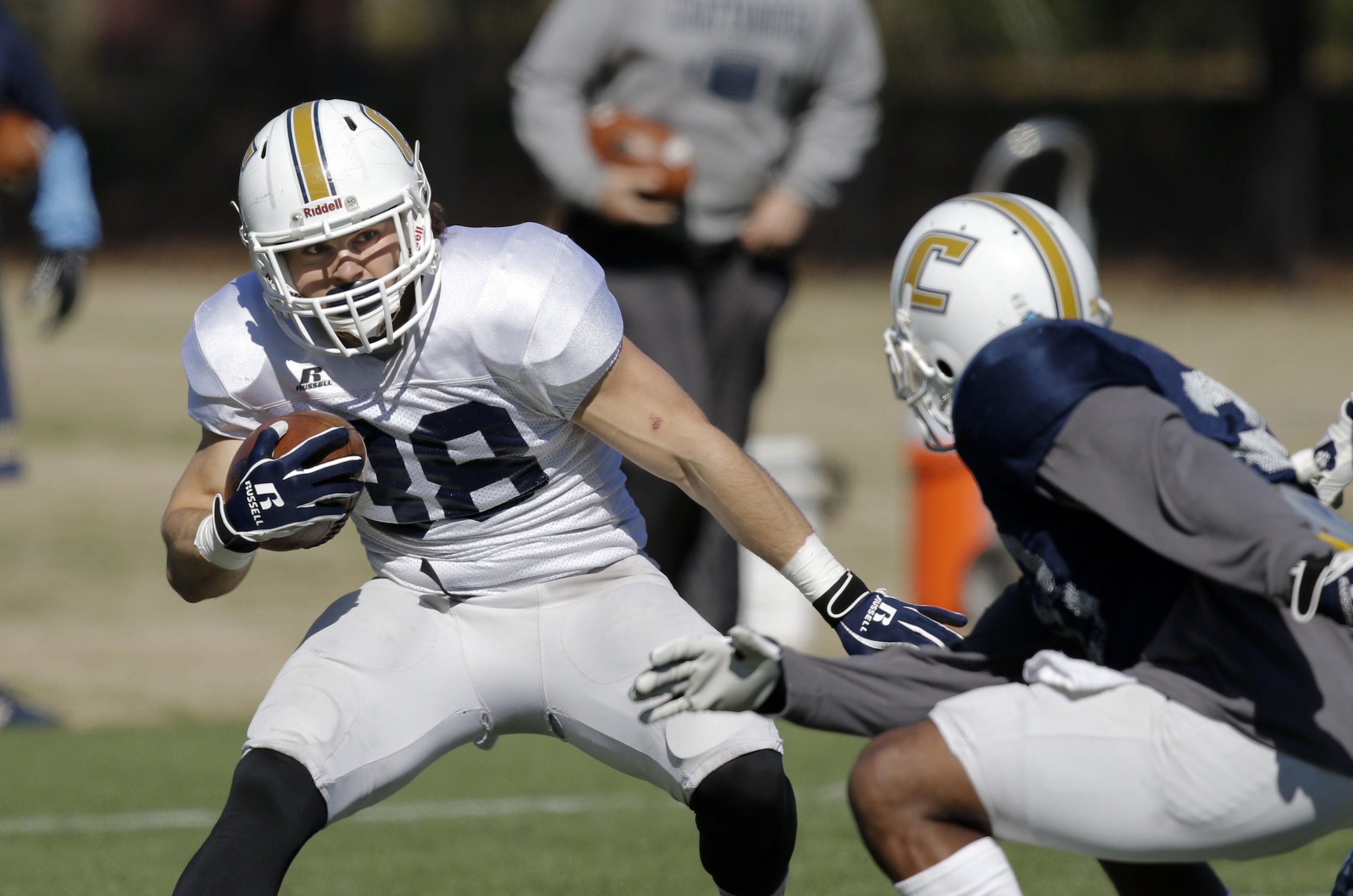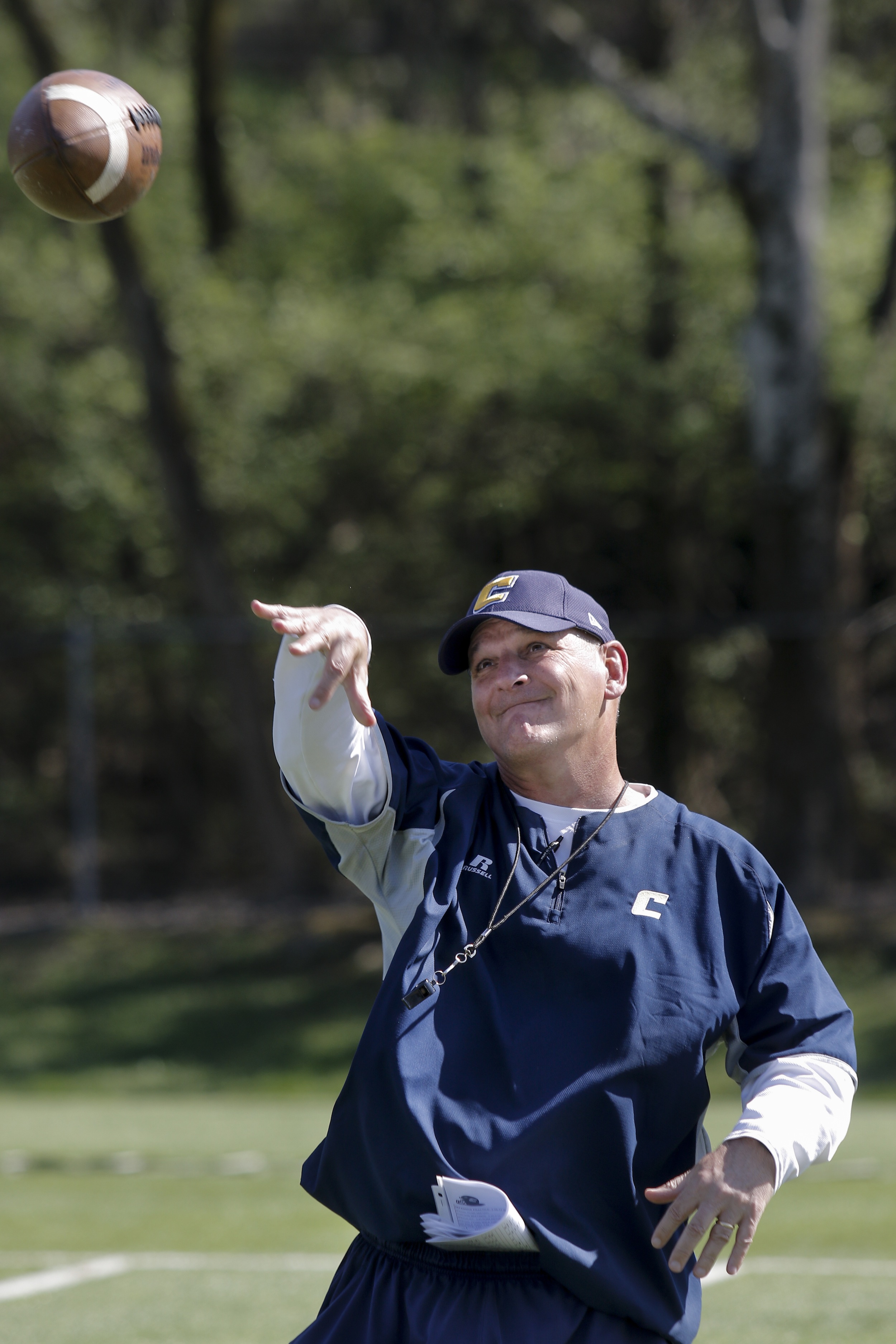A program that was once an afterthought - to the point that there was talk of shutting it down - has now become another point of pride throughout Chattanooga.
The University of Tennessee at Chattanooga Mocs football team is coming off the greatest season in program history, complete with an outright Southern Conference championship win, a national top 10 ranking, numerous individual awards and the program's first-ever playoff win. The memory of those accomplishments and the return of a nucleus that includes senior quarterback Jacob Huesman, the two-time SoCon offensive player of the year, makes the Mocs the favorite to claim a third straight conference title. And that's helping build anticipation for this year's kickoff.
"There's a lot to be proud of," says UTC coach Russ Huesman. "[Last year's] senior class accomplished a lot of good things while they were here - helped us get things turned around and laid the foundation for hopefully some big things to come. And I'm really glad we have guys like Jacob and a lot of other talent around him coming back."
There's no way to put a price tag on the emotional high of winning a playoff game, but there certainly is a real-world payoff for having a successful Football Championship Series (previously I-AA) program, and the Mocs can expect to benefit from their time in the spotlight.
The Mocs' 35-30 quarterfinal loss at New Hampshire last year ended their season but also showcased the program to a national television audience. According to Joe Johnson, CEO and president of local marketing firm The Johnson Group Advertising and Marketing Agency and a UTC alumnus, the school will benefit greatly from that exposure.
"As far as branding of the program and the school, the football success will help in a lot of areas," Johnson says. "Research says they'll already see a higher quality of student and athlete and more overall student applications, as well as larger donations from boosters and alumni. There will be a ripple effect and even word of mouth with student pride and morale going up and having them tell other people what a great school they have.
"That's a few hours of national advertising for the university, having 'Chattanooga' and their logo on the screen for millions of people to see."
Market research showed a 20-percent jump in student enrollment at Appalachian State the year after its first football national championship in 2005, he adds. Two years later, App State saw a 17-percent increase in applications after its upset win over Michigan.
Both Johnson and UTC Athletic Director David Blackburn reference the "Flutie Factor" as proof that a college football team's on-field success can translate into millions of dollars for a university and surrounding city. That is in reference to former Boston College quarterback Doug Flutie and the role his Hail Mary touchdown pass that beat Miami in 1984 supposedly played in BC's large increase in student applications the next year.
"When I was at Tennessee, the year after we won the national championship we saw a student application rise of about 22 percent," Blackburn says. "Now that's a program on a larger scale, but all of our research shows that the further your football team advances, the more national exposure you get naturally, and that translates into more interest from prospective students. A larger pool of student applications also means a higher quality of student, which attracts more business.
"Coach [Russ] Huesman and the football program are doing a wonderful job promoting not only UTC but our city."
"Because of social media, things are different than when our basketball team made that run to the Sweet 16 in 1997," explains Chuck Cantrell, UTC's associate vice chancellor for marketing and communications. "There was a gradual upswing in interest for our campus then, but now it can be instant. We can promote it on our website right then, and our logo and brand will be featured nationally."
According to the UTC athletic department, when Jimmy Fallon featured the school's basketball team on his late-night talk show in 2009, it was worth $500,000 in national exposure. Three years later, when Mocs golfer Steven Fox won the 2012 U.S. Amateur in dramatic fashion, the two-day television event was good for an estimated $2 million of national exposure for the school.
As recently as when most of the current players were in grade school, it would have been difficult to see through the dark fog of futility and envision such a bright future.
In the 24 years between the program's last playoff appearance in 1984 and the December 2008 hiring of Russ Huesman to coach the Mocs, there were just five winning seasons. With the Mocs losing 63 percent of their games during that frustrating stretch, things became so bleak that recurring gossip in the community whispered that the university might consider dropping football.
"When I arrived, the basketball team was rolling and the question I got most often was whether there was anything we could do to get football to the same level," says Dr. Bill Stacy, UTC's chancellor for eight years beginning in 1997. "There were some tough times. Bluntly, a lot of folks were interested in football and they were disappointed in the program.
"In the South it's expected to have chemistry, English and football for a full university. There were folks who said if we couldn't do any better in football, we should just put our concentration on basketball."
As each season passed, the numbers added up to equal a worrisome future for the UTC football program. Beginning in the early 1990s, when a budget crisis affected schools throughout the state, the losses on the field meant a growing strain on the athletic budget as ticket sales and donor support waned.
"On numerous occasions there were suggestions that we were spending too much on football," recalls Dr. Richard Brown, UTC's executive vice chancellor in charge of finance and operations. A 1980 UTC alumnus, Brown has worked for the university for 30 years.
"The discussion reached as high as my office, but I did some research and it made no sense," he says. "The football program adds to the actual quality of life at a university. It's the front door of a university. Certainly the academic portion has to be No. 1 - that's why the university exists. But student-athletes graduate at a higher rate than the regular student population and they can energize the whole campus and bring great connectivity to the community."
Other state schools at the I-AA (now FCS) level, struggling similarly to UTC both on the field and financially, did wind up taking drastic measures involving their football programs. In a move to save money, Austin Peay stopped giving athletic scholarships for football for 10 years before returning to scholarship-program status in 2006. East Tennessee State University dropped its football program altogether in 2003 but has since brought the sport back and will rejoin UTC in the Southern Conference next season.
CHANGING FORTUNES
Fortunes began to turn for UTC when Rick Hart, the school's athletic director from 2006 to 2012, and the administration agreed that it would take an investment by the school to break the football program from the doldrums.
During the coaching search that followed the team's one-win 2008 season, Hart narrowed the choices for head coach to Hugh Freeze and Russ Huesman. Believing both men were equally qualified to resurrect UTC's program, Hart eliminated Freeze, who went on to success at Arkansas State and now has directed Ole Miss to four consecutive bowl games. Hart's belief was that as an alum, Huesman understood the culture around the Mocs program and what was needed, and that he would put down long-term roots.
"Russ was the long-term solution," says Hart, now the athletic director at Southern Methodist University. "Hugh Freeze has proven to have a very bright future of his own, but I believed Russ would build the program to last.
"One person can't build a program - it took a commitment from a lot of people at a time when there were a lot of questions - but I'm proud of the way so many people worked hard to get it where it is now."
With five winning seasons in the six years since Huesman took over, including back-to-back SoCon titles, the program's first appearance in the playoffs' second round, and 22 players on the 2014 all-conference teams, the program has climbed out of uncertainty to lend a jolt of energy not only on campus but throughout the city.
"When I took the job I knew we aren't very good at the time, so let's get it better," Coach Huesman says. "I was extremely excited about what we could do. All you had to do was give them some hope and you had a chance. Everybody just went to work, and I am really proud of our staff and players and everybody who has helped us get things headed in the right direction."
Last season, UTC led the conference in attendance, drawing an average of more than 10,000 fans per home game. The coaching staff has put together consecutive recruiting classes that ranked first nationally among FCS programs and should help maintain the program's solid footing for years to come.
The Mocs' football $2.9 million annual operating budget is comparable to most of the other FCS playoff programs. Coach Huesman agreed to a three-year contract extension last February that will keep him with the program through the 2018 season, and which raised his annual pay to $205,738. He receives a $5,000 bonus for winning the Southern Conference and for reaching the FCS playoffs, and UTC's assistant coaches also receive bonuses for advancing in the playoffs.
"It's extremely important to maintain a healthy football program for a couple of reasons," Blackburn explains. "It's the largest revenue generator as far as donations and ticket sales. And secondly, there's something about, in this part of the country especially, how the sport builds morale, self-esteem and confidence of the whole campus.
"I think we're sitting on a gold mine. Geographically we're located in a perfect place, and with the plans we have to build a new athletic complex, the success from football is going to help drive our whole program for a long time to come."
